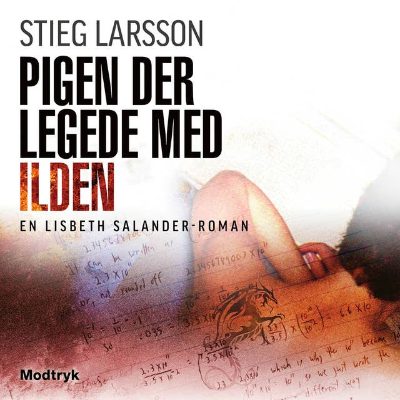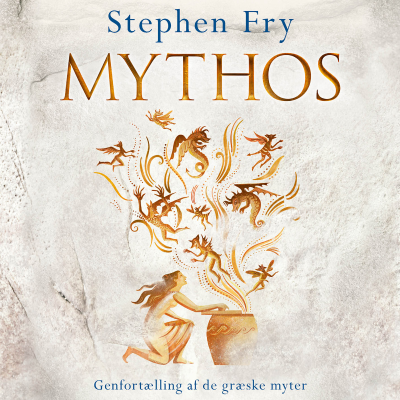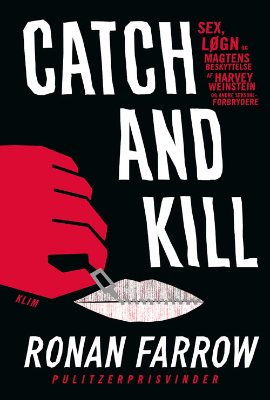
Citation Needed
Podcast by Citation Needed Media
Start 7 days free trial
99 kr. / month after trial.Cancel anytime.

More than 1 million listeners
You’ll love Podimo and you’re not alone
Rated 4.7 in the App Store
About Citation Needed
The podcast where we choose a subject, read a single Wikipedia article about it, and pretend we’re experts. Because this is the internet, and that’s how it works now.
All episodes
437 episodesThis is a teaser episode of our Patreon Bonus Episode. This is the first few minutes of that particular episode to let non-patrons sample that content. You can become a patron here: http://patreon.com/citationpod [http://patreon.com/citationpod]
Defenestration (from Neo-Latin [https://en.wikipedia.org/wiki/Neo-Latin] de fenestrā[1] [https://en.wikipedia.org/wiki/Defenestration#cite_note-1]) is the act of throwing someone or something out of a window [https://en.wikipedia.org/wiki/Window].[2] [https://en.wikipedia.org/wiki/Defenestration#cite_note-2] The term was coined around the time of an incident [https://en.wikipedia.org/wiki/Defenestrations_of_Prague#The_1618_Defenestration_of_Prague] in Prague Castle [https://en.wikipedia.org/wiki/Prague_Castle] in the year 1618 which became the spark that started the Thirty Years' War [https://en.wikipedia.org/wiki/Thirty_Years%27_War]. This was done in "good Bohemian style", referring to the defenestration which had occurred in Prague's New Town Hall [https://en.wikipedia.org/wiki/New_Town_Hall_(Prague)] almost 200 years earlier (July 1419), and on that occasion led to the Hussite war [https://en.wikipedia.org/wiki/Hussite_war].[3] [https://en.wikipedia.org/wiki/Defenestration#cite_note-3] The word comes from the Neo-Latin [https://en.wikipedia.org/wiki/Neo-Latin][4] [https://en.wikipedia.org/wiki/Defenestration#cite_note-4] de- [https://en.wiktionary.org/wiki/de-] (down from) and fenestra [https://en.wiktionary.org/wiki/fenestra] (window or opening).[5] [https://en.wikipedia.org/wiki/Defenestration#cite_note-5] By extension, the term is also used to describe the forcible or summary [https://en.wiktionary.org/wiki/summary] removal of an adversary.[6] [https://en.wikipedia.org/wiki/Defenestration#cite_note-6]
Moving Day was a tradition in New York City [https://en.wikipedia.org/wiki/New_York_City] dating back to colonial [https://en.wikipedia.org/wiki/Colonial_America] times and lasting until after World War II [https://en.wikipedia.org/wiki/World_War_II]. On February 1, sometimes known as "Rent Day", landlords would give notice to their tenants what the new rent would be after the end of the quarter,[1] [https://en.wikipedia.org/wiki/Moving_Day_(New_York_City)#cite_note-1] and the tenants would spend good-weather days in the early spring searching for new houses and the best deals.[2] [https://en.wikipedia.org/wiki/Moving_Day_(New_York_City)#cite_note-2] On May 1 [https://en.wikipedia.org/wiki/May_1],[3] [https://en.wikipedia.org/wiki/Moving_Day_(New_York_City)#cite_note-3] all leases in the city expired simultaneously at 9:00 am, causing thousands of people to change their residences [https://en.wikipedia.org/wiki/Moving_(address)], all at the same time.[4] [https://en.wikipedia.org/wiki/Moving_Day_(New_York_City)#cite_note-4][5] [https://en.wikipedia.org/wiki/Moving_Day_(New_York_City)#cite_note-5]
Samuel Langhorne Clemens (November 30, 1835 – April 21, 1910), known by the pen name Mark Twain, was an American writer, humorist [https://en.wikipedia.org/wiki/Humorist], and essayist. He was praised as the "greatest humorist the United States has produced",[1] [https://en.wikipedia.org/wiki/Mark_Twain#cite_note-1] with William Faulkner [https://en.wikipedia.org/wiki/William_Faulkner] calling him "the father of American literature [https://en.wikipedia.org/wiki/American_literature]".[2] [https://en.wikipedia.org/wiki/Mark_Twain#cite_note-faulkner-2] Twain's novels include The Adventures of Tom Sawyer [https://en.wikipedia.org/wiki/The_Adventures_of_Tom_Sawyer] (1876) and its sequel, Adventures of Huckleberry Finn [https://en.wikipedia.org/wiki/Adventures_of_Huckleberry_Finn] (1884),[3] [https://en.wikipedia.org/wiki/Mark_Twain#cite_note-3] with the latter often called the "Great American Novel [https://en.wikipedia.org/wiki/Great_American_Novel]". He also wrote A Connecticut Yankee in King Arthur's Court [https://en.wikipedia.org/wiki/A_Connecticut_Yankee_in_King_Arthur%27s_Court] (1889) and Pudd'nhead Wilson [https://en.wikipedia.org/wiki/Pudd%27nhead_Wilson] (1894) and cowrote The Gilded Age: A Tale of Today [https://en.wikipedia.org/wiki/The_Gilded_Age:_A_Tale_of_Today] (1873) with Charles Dudley Warner [https://en.wikipedia.org/wiki/Charles_Dudley_Warner]. The novelist Ernest Hemingway [https://en.wikipedia.org/wiki/Ernest_Hemingway] claimed that "All modern American literature comes from one book by Mark Twain called Huckleberry Finn."[4] [https://en.wikipedia.org/wiki/Mark_Twain#cite_note-The_American-4]
"The Juniper Tree" (also "The Almond Tree"; Low German [https://en.wikipedia.org/wiki/Low_German_language]: Von dem Machandelboom) is a German fairy tale [https://en.wikipedia.org/wiki/Fairy_tale] published in Low German [https://en.wikipedia.org/wiki/Low_German] by the Brothers Grimm [https://en.wikipedia.org/wiki/Brothers_Grimm] in Grimm's Fairy Tales [https://en.wikipedia.org/wiki/Grimms%27_Fairy_Tales] in 1812 (KHM 47).[1] [https://en.wikipedia.org/wiki/The_Juniper_Tree_(fairy_tale)#cite_note-:02-1] The story contains themes of child abuse [https://en.wikipedia.org/wiki/Child_abuse], murder [https://en.wikipedia.org/wiki/Murder], cannibalism [https://en.wikipedia.org/wiki/Human_cannibalism] and biblical symbolism [https://en.wikipedia.org/wiki/Christian_symbolism] and is one of the Brothers Grimm's darker and more mature fairy tales.

Rated 4.7 in the App Store
Start 7 days free trial
99 kr. / month after trial.Cancel anytime.
Exclusive podcasts
Ad free
Non-Podimo podcasts
Audiobooks
20 hours / month

































